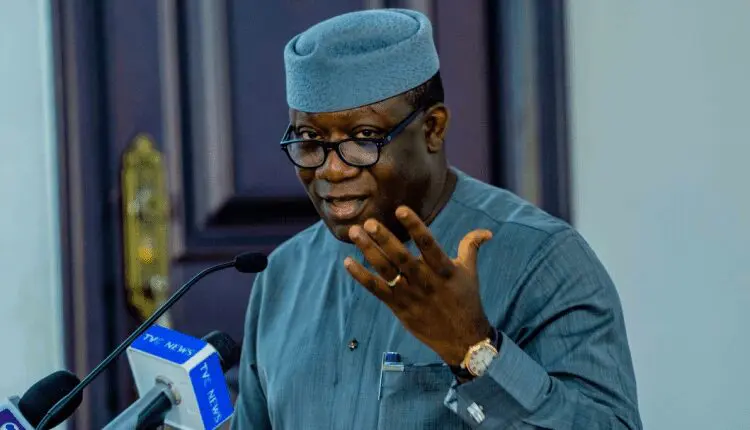Former Ekiti State Governor Kayode Fayemi believes that states should have the autonomy to determine their minimum wage.
The Federal Government and labor unions have been negotiating a new minimum wage for months, with unions demanding N250,000 and the government proposing N62,000.
Fayemi advocates for a decentralized approach to minimum wage negotiations, arguing that states should set their own wages based on their unique circumstances.
“Every governor has to deal with the issue of national minimum wage. When I was governor and chairman of the governor’s forum, and I believe even till this recent negotiation, is that we should decentralise minimum wage negotiations and allow states to have their own negotiations with their own labor unions whilst the Federal Government conducts its own negotiations because the fingers are not equal,” he said on Friday’s edition of Channels Television’s Politics Today.
“This should be decentralised and each state should define in conjunction with their labour unions, with transparency with all the records provided to the labor unions and say, ‘Look, this is what we have, but you are also only five or 10% of our population. We also have another 90% of the population that we must attend to.”
Fayemi believes the talk about a new minimum wage is all about dogma, saying a decentralised negotiation does not mean workers in the state will earn less than those at the federal level.
“What we’re dealing with now is dogma. Labour does not want to hear anything about decentralized national minimum wage and decentralised national minimum wage does not mean that what is paid at the level of the state will be lower than the federal,” the former minister said.
“In the ’60s and the ’50s, civil servants in the western regions used to earn more than federal civil servants.”
‘Cut Your Coat According To Your Size’
The ongoing minimum wage discussions have sparked reactions from stakeholders nationwide.
Governors argue that the previous offer of N60,000 to labor is unsustainable. However, human rights lawyer Femi Falana believes both the states and the Federal Government can afford the minimum wage if they have the political will.
During a Democracy Day dinner on June 12, President Bola Tinubu pledged that the government would pay what it can afford, despite the Nigeria Labour Congress (NLC) demanding a new minimum wage of N250,000.
“The minimum wage is going to be what Nigerians can afford, what you can afford, and what I can afford. Cut your coat according to your size, if you have size at all,” Tinubu said.


